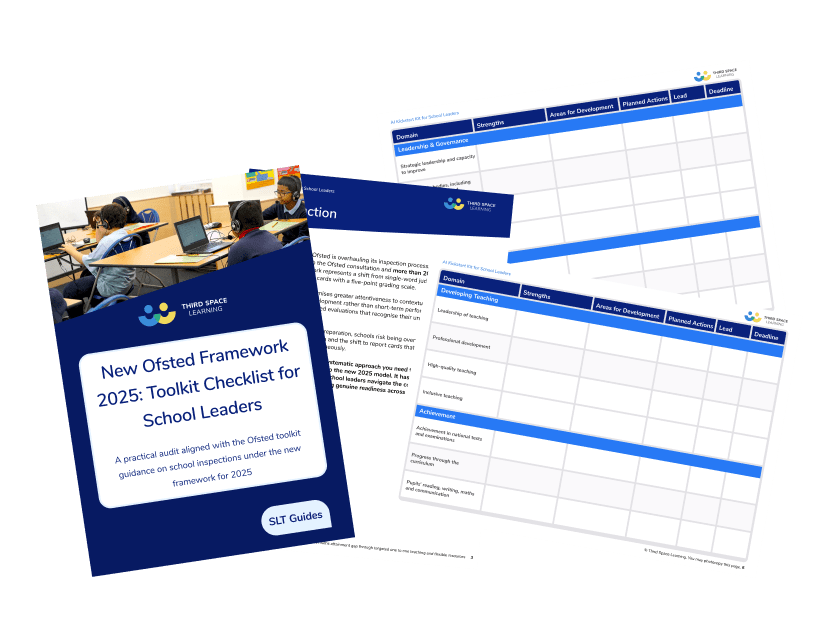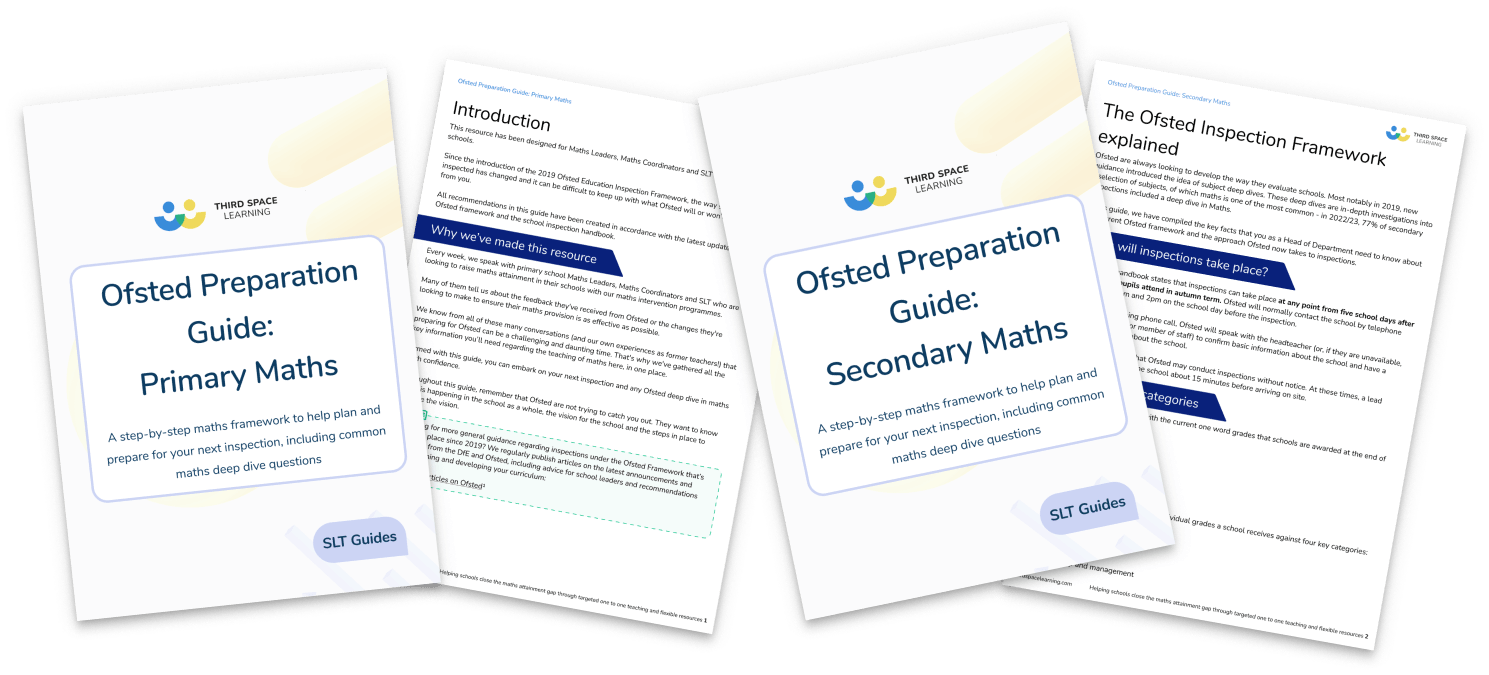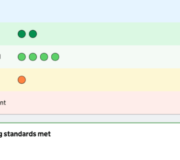What Do Ofsted Look For? Inadequate To Outstanding in One Inspection
In this article, we get a firsthand answer to the perennial question: What do Ofsted look for? TES Award Winner and Headteacher of Parklands Primary School in Leeds, Chris Dyson, gives us his tale of an Ofsted inspection to remember.
When Chris Dyson took over as headteacher the school was rated ‘Inadequate’ by the local authority and within the space of one year, it had 5 different headteachers. Staff didn’t know whether they were coming or going. In the current headteacher’s words, ‘it was a warzone’.
At their last Ofsted inspection they received an Ofsted rating of Outstanding. This is a blow by blow account of how the primary school prepared for their inspection, what happened on the day, and what the reaction has been so far. Straight from the headteacher himself, Chris Dyson.
Read on to find out more.
Note: Parklands Primary School received their Ofsted rating under the previous Ofsted inspection framework but the principles of the process and questions have remained very similar.
Ofsted new education inspection framework
This article is written as per the school inspection handbook that came into force in 2019 and was most recently updated on 16th September 2024.
At the end of 2025, Ofsted started rolling out the new framework under which educational settings will be inspected. The curriculum remains important, but instead of one word judgements schools and other establishments now receive Ofsted report cards with a different grading system.
Inspectors no longer suggest a subject for a ‘deep dive’ but work more collaboratively with headteachers to agree lines of enquiry. Many of the questions asked in a deep dive are still relevant in the new framework.
You can read more about the new Ofsted framework 2025 here. We are continuing to update all our Ofsted guidance for schools.
You may also be interested in our summary of the Ofsted framework 2019 and detailed insights into what an Ofsted Deep Dive looks like under the framework.
Ofsted Preparation Guides
Prepare for your next inspection with this step-by-step math framework. Includes checklists and questions for an Ofsted deep dive in math.
Download Free Now!Preparing for Ofsted Inspection Checklist
There are a million ways to start flustering yourself when an Ofsted deep dive is imminent. For me, it was a case of breathe, relax, and follow this checklist.
- Update your website! Two weeks before you get the call, the inspector has probably looked at your website. It’s such a small thing to do, but it makes a great first impression.
- Get a handle on your ASP data. This is relevant whether Ofsted will look at it or not. Remember, RAISE/ASP only shows where pupils are at currently, it doesn’t show the progress they made to get there. So prepare your data in a way that demonstrates progress made. Ofsted is looking for progress, not attainment. And they’ll expect you to be able to talk about it.
- Make sure your staff are used to having visitors. Then they won’t feel intimidated on the day. Of course, don’t drop in on everyone all the time, but make sure you do it frequently enough that staff are ‘comfortable’ being observed.
- Take stock of your school’s strengths and weaknesses. You can’t fool Ofsted, but you can turn what might be perceived as a weakness, into a strength.
- Make sure all SLT are very familiar with your SEF. Ofsted questions for senior staff are largely the same questions that they ask the Headteacher, and you should all be reading from the same hymn sheet. In our school, SLT and I work on everything together, then we give a ‘watered down’ version to teachers, as they have enough on.
- For SENCO, remember you don’t need to show that attainment is as good as all the other pupils. It won’t be. You just need to be able to show that progress is made and that it is good.
- Another thing I think is really worth bearing in mind is wellbeing. Ofsted are interested in wellbeing of staff. They pick up on it.
- Make sure everyone is on the same page and following the same path. Ofsted check everything is truthful by asking the same questions to SLT and then class teachers. Be honest, be clear, and be confident.
There are two types of inspections carried out routinely under the Ofsted inspection framework. As of September 2022, the terminology for these has changed slightly.
- Graded inspections (previously section 5)
- Ungraded inspections (previously section 8)
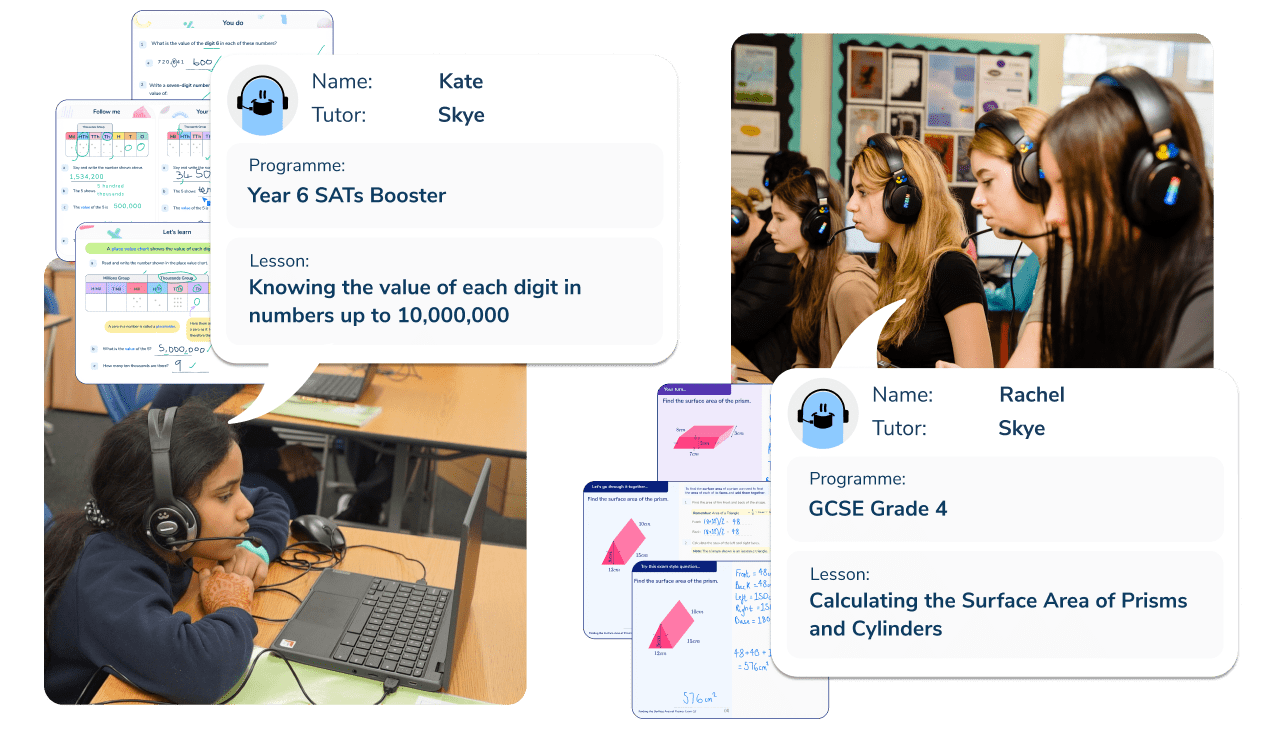
Meet Skye, the voice-based AI tutor making maths success possible for every student.
Built by teachers and maths experts, Skye uses the same pedagogy, curriculum and lesson structure as our traditional tutoring.
But, with more flexibility and a lower cost, schools can scale online maths tutoring to support every student who needs it.
Watch Skye in actionWhat did Ofsted look for during the inspection?
From what I experienced, Ofsted predominantly looked at 5 key things:
- First and foremost, they want to see excellent child protection and safeguarding policies. Child safety is number one.
- They also wanted to see a clear marking and feedback policy. They’re not hugely interested in what this is, they just want to see that it is consistent across your school.
- Then they want to see your behaviour policy.
- A big one they look at is the School Evaluation Form (SEF). Some people do it once a year, I do mine as a working document. So if the call ever comes, it reflects the exact position the school is in now.
- Of course, Ofsted also want to see your School Improvement Plan (SIP) and – equally – how it is shared with staff. In our school, senior leaders need to know the ins and outs of the SIP. However, other staff just get an overview – I don’t want to waste their time on hundreds of pages. Beyond SLT, staff just need to understand the key priorities for that term, and year, so they know what we’re aiming at. They don’t need to know what is on page four of the plan.
Don’t do it ‘for Ofsted’, do it for your school
Generally, I don’t have ‘Ofsted’ files, because everything is up to date. I even sent them our new ASP data (generated from using my own prospective online data) to show how our results Outstanding results last year were matched by the results this year.
People say don’t do it for Ofsted, but really you’re doing it for your school. As a Headteacher, I need to know where the gaps are so we can get better. Simple.
Ofsted are highly intelligent, they’ve been Outstanding teachers and leaders themselves. Frankly, they know what is Outstanding and they know what is baloney.
What happens on an Ofsted inspection?
We got a two day inspection. I’m probably the only Headteacher who wanted a two day inspection in the country! But we have high aspirations in this school. Our KS2 progress scores are the best in the country.
Given that we’re the most deprived primary school in Leeds, that’s a testament to the fact deprivation doesn’t have to be a barrier to learning.
I believe a lot of our success rests on hard work and high aspirations for pupils. As such, I would be a hypocrite if I didn’t have high aspirations for myself and staff. So that’s why I wanted a two day inspection, we were determined to get that Outstanding.
First point of contact: Getting ‘the call’
Well, for starters, when the phone call came (September 11th) it felt like the best day ever. I was flying drones with the Year 2 class and my radio started blaring, “has anyone seen Chris?! Ofsted are on the phone!”
Now I had prepared for this. I’d read Paul Garvy’s ‘Taking Control: How to Prepare Your School for Ofsted Inspection’ (which I highly recommend reading).
His book explains that the inspectors fill out a form based on what your first reaction is like, so I went in over the top with confidence.
I was so busy explaining that I’d been looking forward to this call for three years and showcasing all the great stuff we do that the inspector actually told me to slow down!
The initial call turned out to just be all of the simple stuff: how many pupils do you have on role, etc. After that data was sent, the chief inspector rang me back and we set up the inspection.
We were so ready – the classroom walls over the summer were re-vamped. They were so interactive, and inspiring. The classrooms looked brilliant! Then we waited…
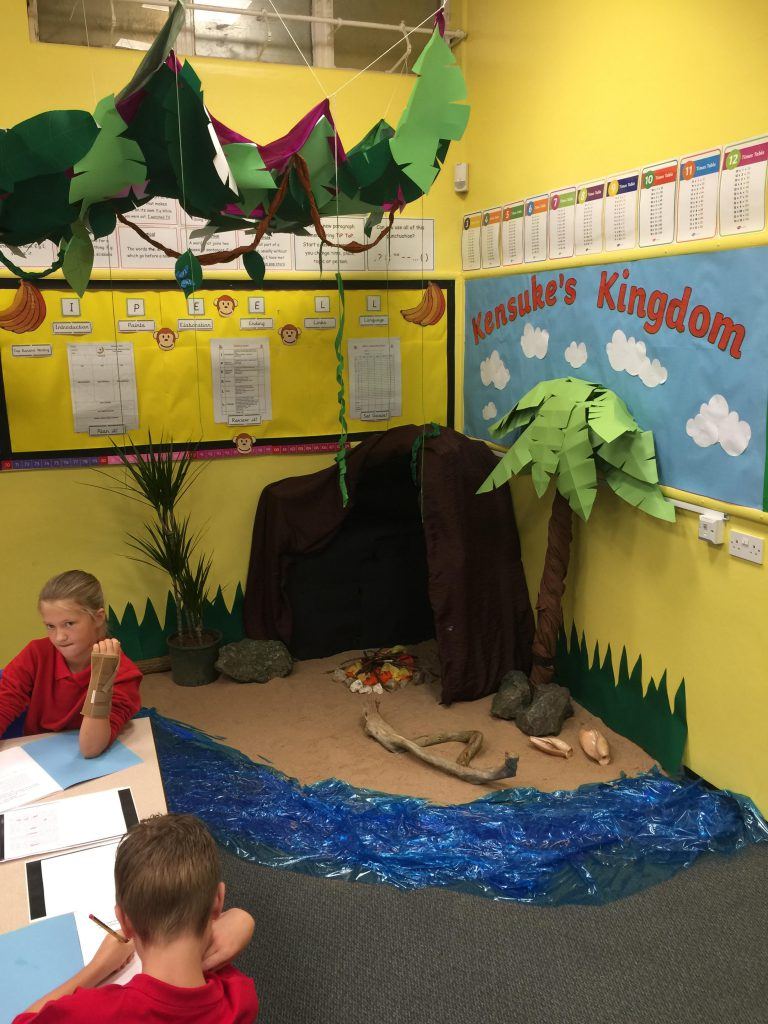
Ofsted inspection: Day 1
The inspector came in the morning, at one minute to eight. I gave them a huge welcome (no hug…not until day two!)
Initially, she wanted to know about our background and to understand where the school is at now vs where it was before.
Then they looked at safeguarding (this is always the first thing they look at properly). They looked at our single register, our safeguarding policies, and our child protection files. Simply to check everything is up to date and accurate.
Note: If you fail child protection, you’re automatically placed into inadequate. Child protection is – and has to be – number one. If a child is not safe, your school is not fit for purpose.
Next, they picked a few random members of staff to check references, safer recruitment, and to have a chat. That took us to quarter to ten.
Over that day, we worked with Ofsted from 8am – 6pm, solid. For me, the main focus was to take the pressure off all my teachers, I bought pizzas and put on big smiles.
After all, the inspectors are coming to see senior leaders run a school. They’re not coming to assess lessons. So if your lesson goes pear shaped because the tech doesn’t work – it won’t affect the grade in any way, don’t worry!
Though there’s no denying an Ofsted inspection can be stressful, overall we tried to treat it the same as any other day. Except it was a day that gave us the chance to showcase the brilliant things we’ve done in our school.
Find out why you should get rid of lesson observations altogether and the effective marking strategy behind a no marking policy from headteacher Clare Sealy.
Ofsted inspection: Day 2
Day 2 was one of the hardest days my school has had. Senior leaders and myself worked from 8am to 9pm, and spent a lot of time sat thinking “when does Ofsted need to see us next”. It would be patronising to pretend it wasn’t a stressful experience.
That being said, day two followed in the same vein as day one. Albeit with heavy scrutiny of our data.
For instance, in our SEF form, I put us down for a ‘2’ for teaching quality. I did this because I hadn’t seen the 6 maternity cover teachers actually teach. The Ofsted inspector immediately noted that I would need a 1 here to get Outstanding (as she knew we were aiming for this).
She said I would need to update this on the stop to have any chance, and that I’d been too hard on our school. They then considered the 2 an ‘end of last term’ score (as we were inspected on the first day of Autumn term). The 1 then became our start of term score.
So while there was very heavy scrutiny, Ofsted did really listen and try to understand the context of our data.
By the end of the day the inspector sat down with my on a sofa and said:
‘Listen, there’s just your books left to look at. And I’m going to be honest with you…I’d love for you to be Outstanding, but we’re not quite sure you are. We just need to see your books now, then we’ll make the decision’.
We then had a Science meeting and looked at our books, then an English meeting, then a Maths meeting, and so on. I genuinely believe it was the power of those books that pushed us into Outstanding. They loved them.
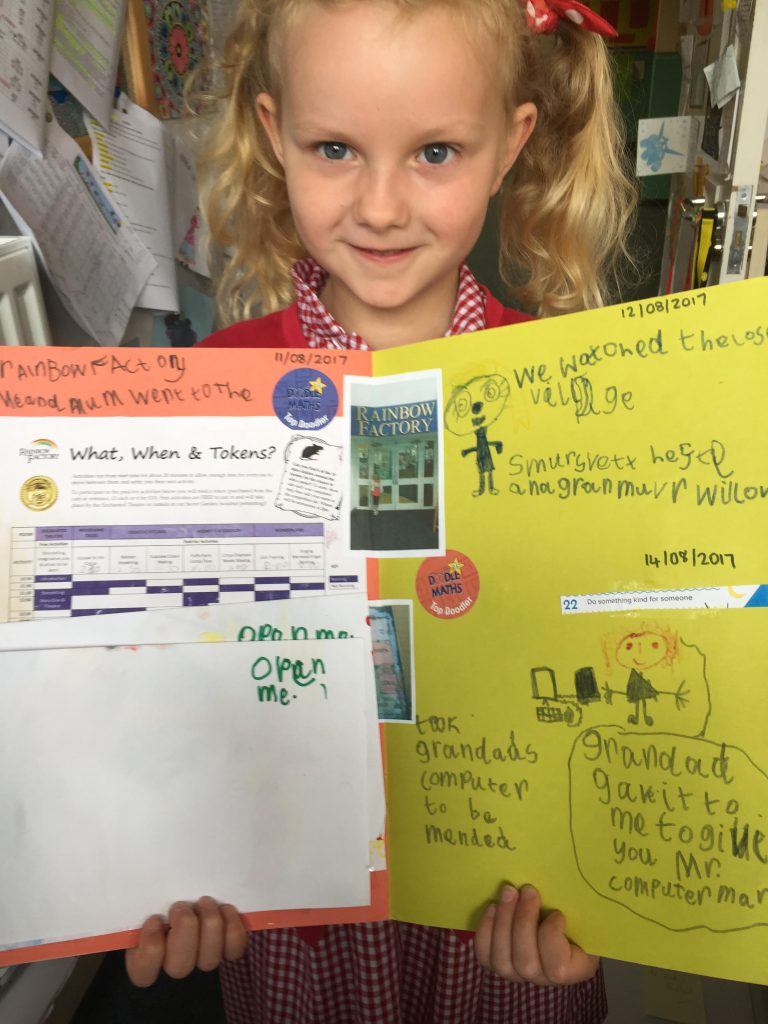
Of course, all Ofsted inspections are different so that won’t be the same for everyone, but they looked at ours intently.
Why Ofsted loved our books
This is an easy one. Every single book showed three things:
- consistency
- sensible marking
- progression
They could clearly see from our books the progress made by pupils.
Age-related expectations were in there, feedback from learning (or notes that verbal feedback was given). Year 1, 3, and 5 all looked showed different levels of learning despite covering the same topics. Which is what they should show!
Plus, we didn’t just take in our best three, we took the entire lot in. Then, because of our honesty, they let us choose our best three.
I really think that if you try to hide anything, they will find out. Think about it, if you’re an inspector you most want to see the things people don’t want to show you.
Inspections under the 2019 EIF will of course include more of a focus on the curriculum. To support your work on this we recommend you read these articles: Beginner’s guide to curriculum development, Everything you need to know about knowledge organisers, Primary curriculum design for intent, implementation and impact.
Why we should work with Ofsted
Ofsted inspections are a divisive subject. But really, my view of Ofsted is that we simply got to work with them. I’ve always had really positive experiences with them as a teacher, leader, Deputy Head and now Headteacher.
That’s because, in all my experiences with them, I take away the positives. They’re not outside eyes here to crucify you, instead, they’re here to tell you where to go next. I try to see it as free CPD.
I know people have had negative experiences with them, but I bet there are very few schools that think they are Outstanding and end up RI. That would show you don’t know your school.
Three years ago, I know we would have gotten inadequate. I also knew the reasons for that and we worked on them together as a school.
The biggest piece of advice on Ofsted I can give to anyone would be: it’s not us and them. When you’re inspected, answer everything in an honest way. If you don’t know anything, go and find out the answer. You can’t give them baloney.
Honestly, Ofsted is the best CPD for me as a Headteacher. We expect our pupils to stretch and push themselves every day. I would be a hypocrite if I didn’t expect the same for myself and my staff. Treat it like any other (albeit more stressful!) day, and do what you do best. Teach.
Read more on Ofsted inspections
- New Ofsted Inspection Framework 2019: Amanda Spielman’s early speech
- Everything You Need To Know About How Ofsted Grades Schools
- Tutoring In School: 12 Strategies To Make It Highly Effective For All Your Students
- The 12 Most Important Ofsted Safeguarding Questions and Answers [2025]
- What Every School Leader Should Know About A Section 5 Ofsted
DO YOU HAVE STUDENTS WHO NEED MORE SUPPORT IN MATHS?
Skye – our AI maths tutor built by teachers – gives students personalised one-to-one lessons that address learning gaps and build confidence.
Since 2013 we’ve taught over 2 million hours of maths lessons to more than 170,000 students to help them become fluent, able mathematicians.
Explore our AI maths tutoring or find out about school tutors for your school.
